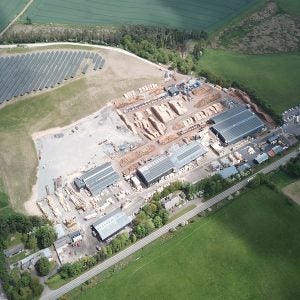The WCC was created in 2011 and has been run by the FC since then (www.forestry.gov.uk/carboncode).
But the latter’s head of economics and climate change, Pat Snowdon, said that its acceptance onto the MER (www.markit.com) credit trading and monitoring operation gave it added credibility and impetus.
"Previously the scheme was run on a rather over-the-counter basis and some businesses were reluctant to get involved because of perceived difficulties in monitoring and verification," he said. "Launching on the MER, where it will sit alongside the Verified Carbon Standard, is a big step and will make tracking much easier."
Carbon dioxide sequestered or absorbed by WCC-accredited woodland can be traded in the form of carbon units, either as investment in their own right, or for companies to ‘use’ in their carbon account to offset enviromental impacts.
The MER will track changes of ownership of each tonne of carbon, and record when projects are registered and credits listed, and when carbon units have been used to offset emissions by companies in their carbon accounts.
To achieve validation under the WCC, woodlands must achieve a level of sustainable management practice in line with the UK Forestry Standard and its Climate Change Standard for Forestry.
The MER is not a trading platform for carbon units, but has a facility for introducing buyers to sellers.
"The WCC’s launch onto the MER brings welcome clarity, and accountability to the developing woodland carbon market," said forestry minister David Heath at the London announcement of the MER tie-up. "It also enhances the attractivenesss of private investment in woodland establishment."






